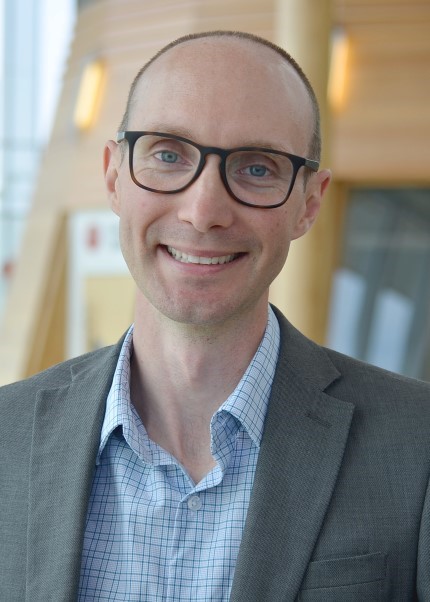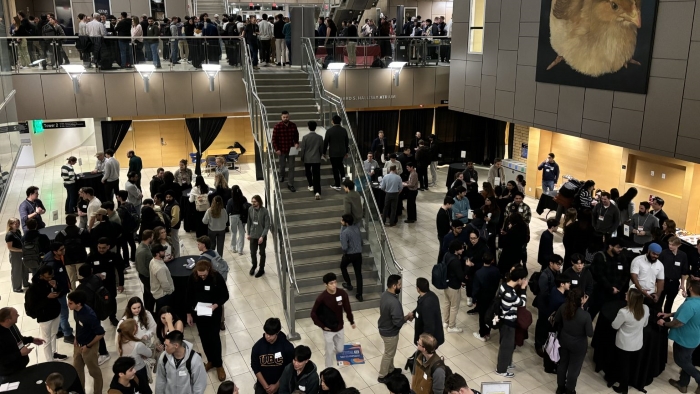
This spotlight was originally published by the Faculty of Creative and Critical Studies and is shared here as it features researchers from the School of Engineering:
A group of researchers at UBC Okanagan is reimagining classroom practices as culturally sustaining and moving beyond traditional notions of academic English writing towards a more inclusive, asset-based, and globally representative learning environment.
Plurality, Linguistic Justice, and Decolonization, focuses on creating a framework to help instructors support multilingual learners (domestic and international students who speak more than one language) in their classrooms by viewing linguistic diversity as an asset rather than a deficit. The project is facilitated by Drs Anita Chaudhuri (UBCO, FCCS), Jordan Stouck (UBCO, FCCS), Jing Li (UBCO, Engineering), and Steve Marshall (SFU, Education).
Chaudhuri, Stouck, Li, and Marshall all teach a variety of first-year English and communications courses, and recognize that multilingual learners write and perform differently, yet much of the conversation recognizing this remains at the policy level or within composition networks.
Chaudhuri explains that in Canada, research exists on plurilingualism, racio-linguistic practices, Indigenous worldviews, and social justice, but there is no established framework to guide classroom application. With this in mind, the team is working to develop the PRISM framework, integrating plurilingual, racio-linguistic, Indigenous, and social justice perspectives for multilingual learners (PRISM).
“At UBC, anti-racist agendas and EDI principles are present, but resources often overlook how students’ linguistic patterns shape their writing,” she adds. “Ultimately, the goal is to rethink standard academic English, making it more inclusive and dynamic, recognizing that language is tied to power and diversity enriches learning.”
Assessment practices in first-year writing courses often emphasize standardized structures like topic sentences and thesis statements. While these conventions remain useful, the PRISM framework encourages flexibility, so instead of one-size-fits-all assessments, instructors can consider multimodal approaches, such as allowing oral presentations for students who excel in speaking encouraging students to mix languages (e.g., code-meshing), show genre awareness, and use multiple forms of expression or technological modes when they compose texts.
“Feedback should move beyond the “red pen” to become an ongoing process, using verbal or interactive methods,” says Chaudhuri.
To get the project off the ground, the team hosted a public speaker series in May 2025 featuring fifteen scholars from across the country who work in writing studies, rhetoric, communication, and first-year academic writing. While they used different terms such as plurilingualism, linguistic justice, translanguaging, code-meshing, the shared idea was clear: multilingual students’ languages, cultures, and transnational experiences should be treated as assets, not deficits.
“We found that these concepts really challenge this traditional way of understanding what it means for multilingual students, to use their own language and dialects as part of their identity and part of their learning process,” says Li. “Building on these theoretical lenses, our project aims to create practical resources such as assignments, activities, and assessment tools for instructors to apply in their classrooms.”
Stouck notes that including student perspectives is essential. At the May speaker series, students acted as moderators and were asked to reflect on how the ideas resonated with their experience as university students.
“We want to get the viewpoints of students to understand if this approach it as how this approach is valuable or useful for their learning at university, not just in theory but in practice,” she says. “It was really interesting to see how this material that we are trying to translate from research into classroom practice resonates with students.”
The PRISM Framework website will become a centralized resource housing recordings, materials, and an evolving framework. This toolkit aims to make linguistic justice principles accessible to instructors through practical strategies, assignments, and culturally responsive activities. Graduate and undergraduate research assistants, along with a web developer, are creating content and animations to ensure accessibility. By connecting scholars’ ideas with classroom application, the project seeks to empower educators to value multilingualism and identity in learning while incorporating students’ full language resources.
Inspired by the May speaker series, staff in the UBC Okanagan Library including Jess Lowry, Academic Communication Consultant at the Centre for Scholarly Communication; Jo Scofield, Student Learning Hub Coordinator; and Rina Garcia Chua, Academic Integrity Program Manager, have compiled a list of supports and resources available for students, researchers, and faculty who want to embrace plurilingualism in their own work and communities.
This project is made possible with funding from a SSHRC Connections Grant, UBC Hampton Research Endowment Fund, UBC StEAR funds, and supported by UBC Okanagan School of Engineering, the Faculty of Creative and Critical Studies, and graduate and undergraduate students Naeem Nadaee (UBCO), Ru Yao (SFU), Harper Kerstens (UBCO), Marcus Hobkirk (UBCO), Eve Kasprzycka (UBCO) and Mark Lovesey (UBCO).
 What does it look like to build a career at the intersection of STEM and entrepreneurship? On February 26, UBC Okanagan’s School of Engineering, WeBC, and ETSI-BC will host a Women in STEM Entrepreneurship panel featuring women founders who are turning technical expertise into real-world impact.
What does it look like to build a career at the intersection of STEM and entrepreneurship? On February 26, UBC Okanagan’s School of Engineering, WeBC, and ETSI-BC will host a Women in STEM Entrepreneurship panel featuring women founders who are turning technical expertise into real-world impact.











 Mohammad Hossein Zarifi (Ph.D. PEng, PRC Tier II, SMIEEE), is currently an Associate Professor and Tier II Principal’s Research Chair (PRC) in Sensors and Microelectronics at the School of Engineering at UBC Okanagan, and the Director of Okanagan MicroElectronics and Gigahertz Applications laboratory (OMEGA Lab).
Mohammad Hossein Zarifi (Ph.D. PEng, PRC Tier II, SMIEEE), is currently an Associate Professor and Tier II Principal’s Research Chair (PRC) in Sensors and Microelectronics at the School of Engineering at UBC Okanagan, and the Director of Okanagan MicroElectronics and Gigahertz Applications laboratory (OMEGA Lab).